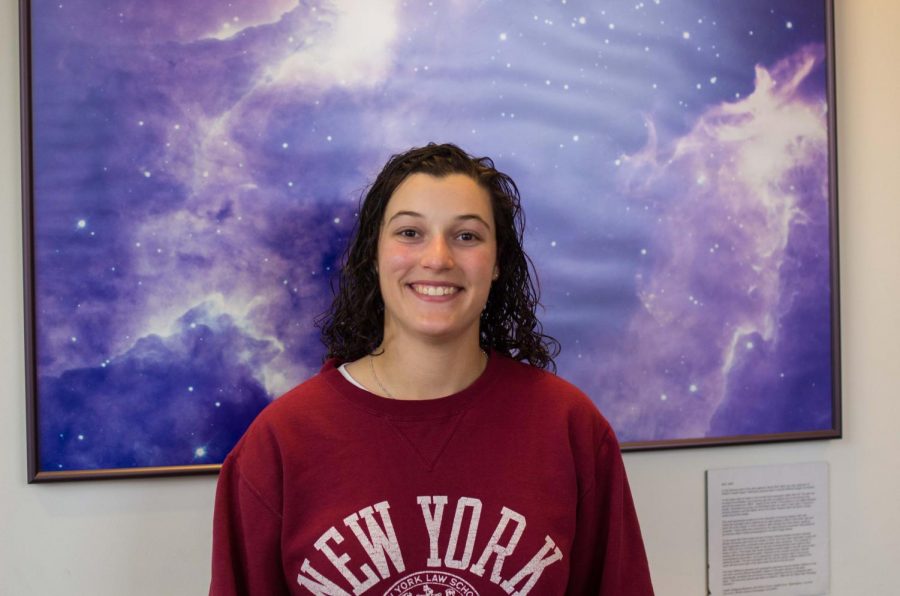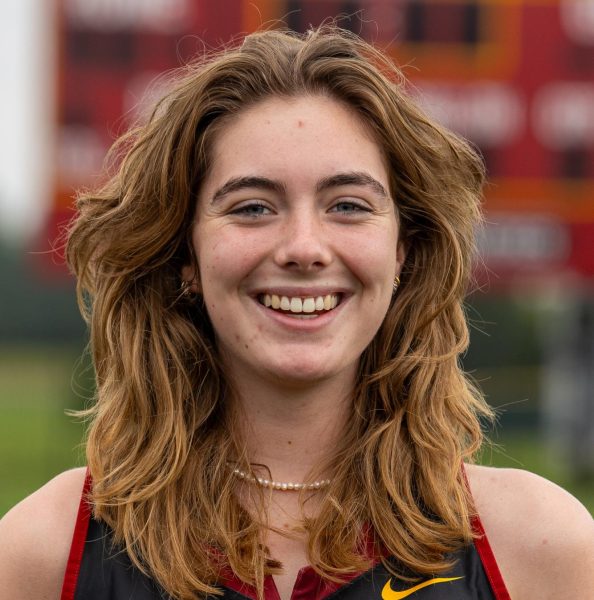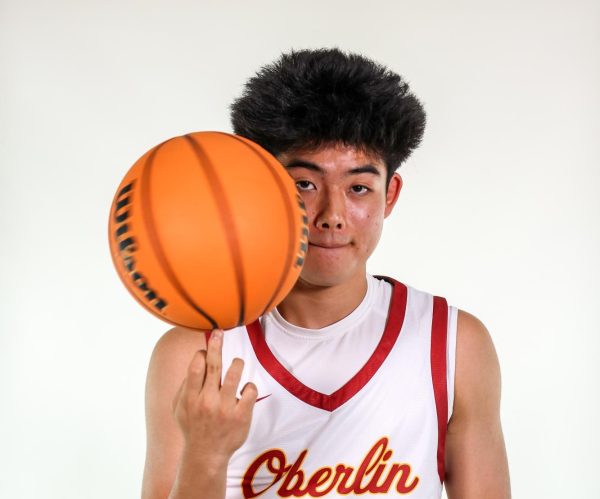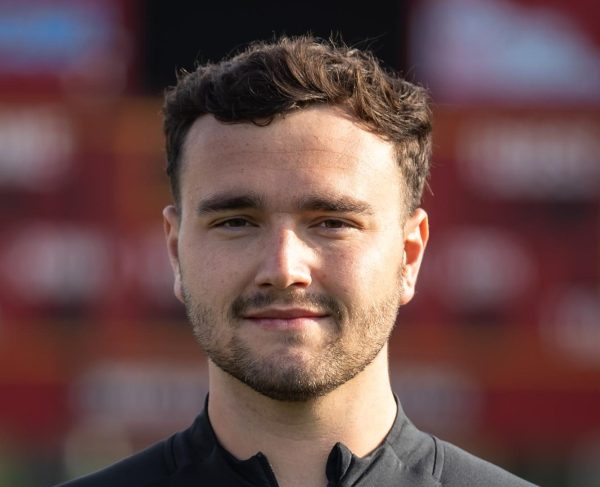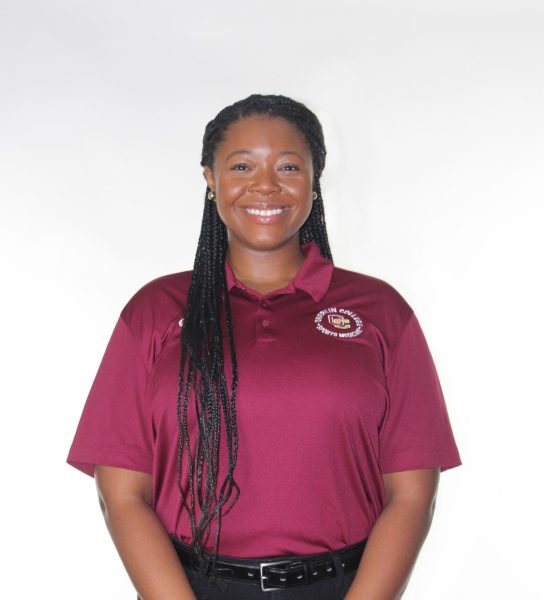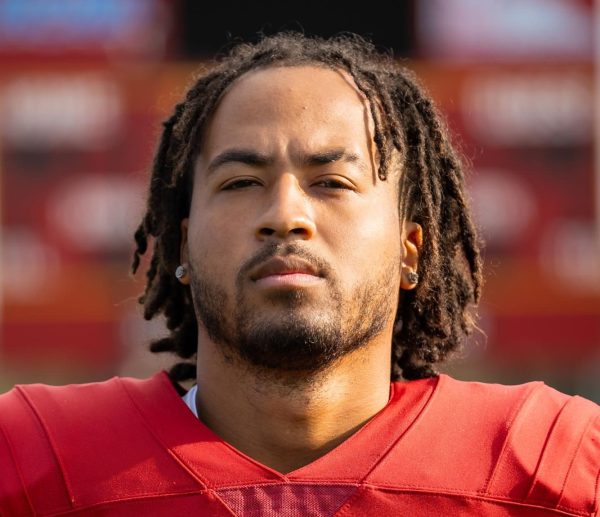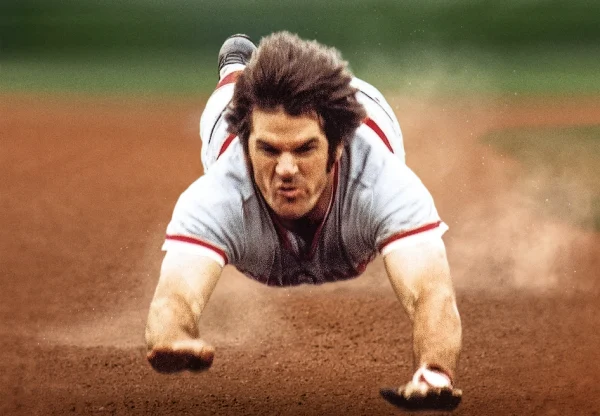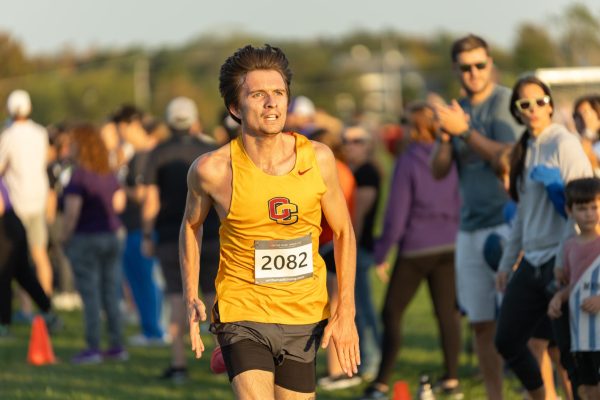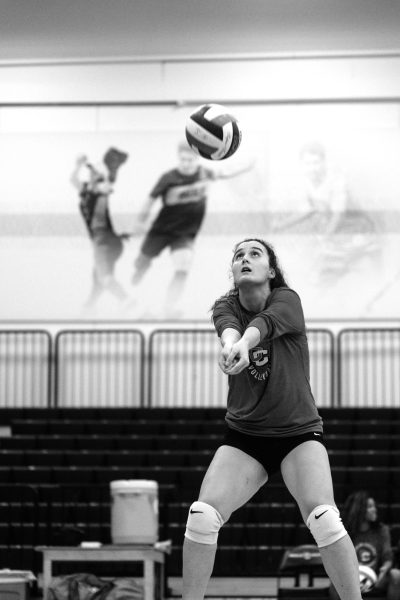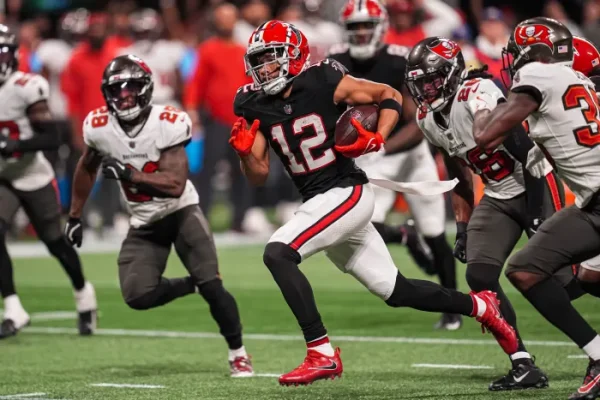In The Locker Room with Dana Rae Goldstein, Softball Player, Environmentalist
Dana Rae Goldstein
College senior Dana Rae Goldstein is a key player on the softball team. As a junior, she started all 40 games in the outfield and hit a team second-best of .368. She led the team with 49 hits and collected 27 runs and 23 RBI. However, she does plenty outside of the athletic community at Oberlin. As an Environmental Studies and Psychology double major, Goldstein has served as a mentor for the Office of Disability Resources and engages in several projects to help her fellow students use resources more efficiently.
This interview has been edited for length and clarity.
The Jewish Sports Review selected you for the 2017 College Softball All-America Team for your efforts last spring. What are some things you want to accomplish this year as a senior?
I think what I’m trying to accomplish is timely success — not even so much just hits, but sacrifice flies when my team needs them or hits when my team needs them. I think that is the next step for me in my development as a player. You can hit a single with two outs, and that’s great for your average, but I hope that this year I can contribute in a more tangible way on the scoreboard.
You just got back from your spring break trip in Florida. What are some takeaways from those games?
Each year seems less daunting for me. I had never experienced playing that many games in such a short period of time before I got here, and I didn’t know how to prepare for that kind of fatigue or prepare mentally. This year I went to Florida with my body feeling its best and just mentally ready to play those games. I also learned how to enjoy time with my teammates, whether it’s shopping at Disney Springs or just the little things that we do together. I think it’s uncommon to find a group of 18 girls who can happily wake up together at 6 a.m. We’re a special group that wants the same thing, and I’ve really learned to enjoy that team aspect.
What is your favorite part of being a member of a team and a larger athletic community at Oberlin?
I love that it is such a big part of my life but also is kept in balance. I identified so strongly as a softball player growing up, working really hard and making sacrifices … so that I could become a better player. It feels really great to improve as a player, but also it’s Oberlin and it’s Division III. I’m allowed to embrace my other identity as a student with other interests. It’s really exciting. I think every student-athlete you meet has unique interests that they pursue outside of their sport. They take the skills that they use to prepare and be their best as an athlete and use them in their other interests as well.
You used to be a mentor for the Office of Disability Resources, which was a role you took very seriously. Why do you view mental health as something that deserves a lot of attention?
I had learning challenges growing up, but I never took advantage of accommodations because I didn’t think I needed to. When I got to Oberlin, I found that I didn’t know how to form good habits, show up places on time, hand things in on time, or work around writer’s block, and it became very apparent that new environments give space for different disabilities to arise in new ways. I did poorly my first semester here and was really lucky that I had my mentor [and] also my teammates. Not everyone is so lucky as to be on a team here, so I felt that it was my duty to pay it forward and be someone else’s “team.” It just felt like becoming a mentor was the right thing to do.
You’re invested in preserving the environment and using resources efficiently. What are some of the projects you take part in?
I’m a Psychology and Environmental Studies double major. I picked both because at the time, I couldn’t decide which I liked more. It just so happened that they fit very well together. Cindy Frantz has been a really big part of my time here. She’s a psychology professor and a faculty member in the Environmental Studies department. I took her social psychology class the fall of my sophomore year, and it became so apparent how connected the two areas of study are. I’ve been in her research lab since the spring of my sophomore year. It’s called Community-Based Social Marketing. I work alongside Anna Moore from the basketball team most of the time, and I’ve loved the projects that we work on together. We’ve evaluated how people go about sorting in the mailroom. We’ve done interventions and evaluations with recycling in the Union and Goldsmith houses. Our research yielded that psychology and sociability increase the success of the interventions. The more people that were there at the time of our quizzing or educating, the more effective and improved the houses become at recycling.
Currently, for the practicum I’m in, my group and I looked at different buildings all over campus and evaluated what kind of lighting systems they have and taught ourselves all about how lighting works. Then we proposed retrofits for different buildings and calculated how much energy they would save and the money that would be saved. Hopefully we receive an $11,000 grant from the Green Edge Fund to install 726 LEDs in the [Conservatory buildings]. That should save the school around $100,000 in a decade.
There’s a big project you’re currently working on that you’ve been excited about. Can you explain what it is?
There was a green container takeout program in Dascomb, and it’s still there. However, we’re trying to incorporate it into DeCafé, especially now that Dascomb is closing and there’s going to be an excess of green containers. So now, in the DeCafé line, you can ask for a green container for free, and you just return it whenever you feel like it. All you have to do is sign up. I’m really excited about it, because it’s something that can continue to have an impact beyond my time here. It really speaks to the type of work I want to do. Not only are you producing less waste, but you’re buying fewer materials, which is using fewer resources, which has a smaller carbon footprint. It creates this cycle of improved behavior, which is happening now.
If you could go back and change anything about your college experience, what would you change?
I think I would go to more concerts and talks that I don’t initially have interest in just to expand my horizons a little bit. I picked Oberlin because it offered me so much that I didn’t know about, and I wanted to be pushed like that. I love my friends. Their interests are so varied. I can walk into my kitchen and see one friend practicing Egyptian belly dancing for a class, one friend might ask me if she could read me her screenplay, and another might ask me for a psychological analysis. I just love how nuanced and passionate everyone’s interests are. I wish I could have taken more time for that, because it’s so easy to get caught up in, “Oh, I need to take more reps,” “I need to do more for this class.”


